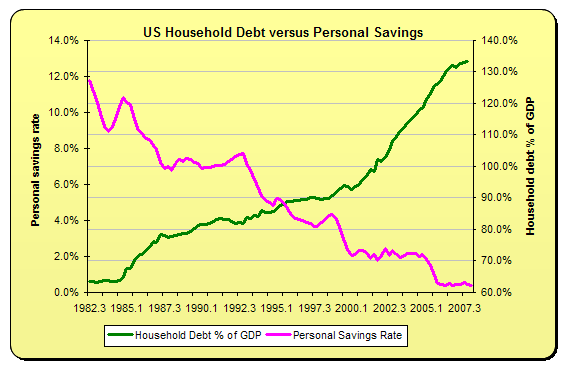Thanks for the passages.
Which one(s) said "savings holds money out of the economy"?
Todd, it is called the "Paradox of thrift", and as I said, it is a very basic economic concept that has been accepted theory for seventy five years, although I am pretty sure Xenophon touched on it 1600 years ago. The fact that you are not familiar with such a basic economic concept is quite telling. I would suggest you learn the fundamentals before attempting to debate economic policy.
Paradox of thrift - Wikipedia
Oh, and by the way, I asked hours ago rather purchasing stock from the stock exchange was savings or investment. No one answered, it is savings, not investing.
Todd, it is called the "Paradox of thrift",
The Paradox of thrift said savings "holds money out of the economy"?
The fact that you are not familiar with such a basic economic concept is quite telling.
When you can show that it backs up Derp's claim, let me know.
I would suggest you learn the fundamentals before attempting to debate economic policy.
Coming from a guy who thinks a 90% tax rate leads to more investment than a 20% rate, that's hilarious!!!!
Dude, pull your head out of your ass, what do you think this means?
The paradox states that an increase in autonomous saving leads to a decrease in aggregate demand and thus a decrease in gross output which will in turn lower total saving. The paradox is, narrowly speaking, that total saving may fall because of individuals' attempts to increase their saving, and, broadly speaking, that increase in saving may be harmful to an economy.[1] Both the narrow and broad claims are paradoxical within the assumption underlying the fallacy of composition, namely that what is true of the parts must be true of the whole. The narrow claim transparently contradicts this assumption, and the broad one does so by implication, because while individual thrift is generally averred to be good for the economy, the paradox of thrift holds that collective thrift may be bad for the economy.
Decrease in gross output. You can consider gross output as "money". Like I said, fundamental economics covered within the first couple weeks of an intro Macro course.
And twenty percent tax rate might yield more investment than a ninety percent rate but most certainly LESS than a fifty percent rate. The Laffer curve is a curve, as I have pointed out time and time again. Again, basic fundamental economics.
what do you think this means?
It doesn't mean that my deposit in a bank "holds money out of the economy".
I'm sure Derp appreciates your attempt to make him look less stupid. Keep trying.
And twenty percent tax rate might yield more investment than a ninety percent rate but most certainly LESS than a fifty percent rate.
Why?
The financial industry is a big ass vampire sucking the blood from the lower and middle class. It is the very reason wages have remained stagnant and, for those in the middle, there has been little to no growth in wealth. Consider the total cost of financial intermediation, that is, what it cost the financial industry to produce loans, stocks, and bonds measured as a percentage of GDP. When they were building the railroads it was less than two percent. When they were financing the expansion of the steel industry it was about two percent, when it came to the automobile and chemical industry, about three percent. The space race, four percent. When Ronald Reagan took office it was at five percent.
Now think about this, information technology has lowered the cost of doing business in almost every category. But for some strange reason, the cost of financial intermediation is now over nine percent. Conservatively, that is sucking a minimum of two percent of GDP right out of the economy. Imagine if that two percent was going into the hand of the workers instead into the pockets of the financial executives. Wages would be higher, the middle and lower classes would have more wealth, and for sure, we would have higher growth. So yes, the financial industry, via interest and fees, sucks "money" right out of the economy.
Graph: How the Financial Sector Consumed America’s Economic Growth
The financial industry is a big ass vampire sucking the blood from the lower and middle class.
They add a lot of value.
Don't like them?
Feel free not to lend or deposit.
Or get in on the action. You can buy financial stocks for less than a $5 commission.
So yes, the financial industry, via interest and fees, sucks "money" right out of the economy.
Because they hide their earnings in a jar in the yard. DERP!
You still didn't explain why a 50% corporate tax rate yields more investment than a 20% tax rate.


